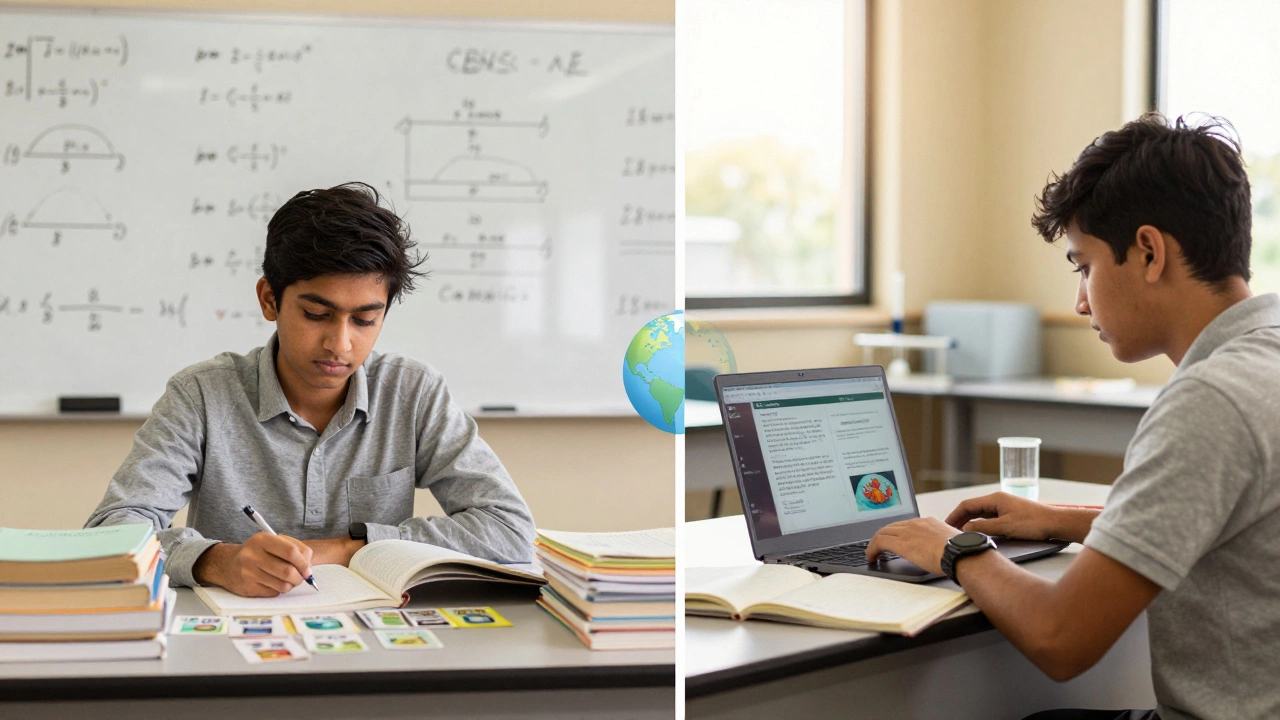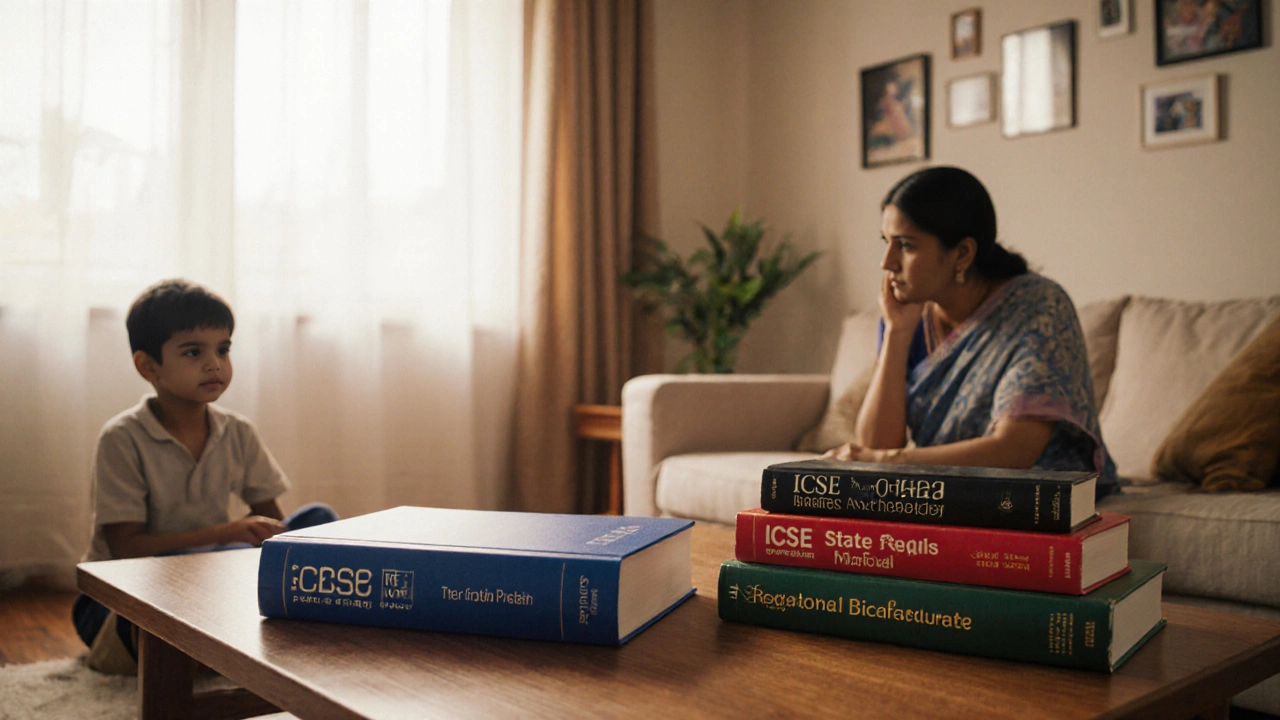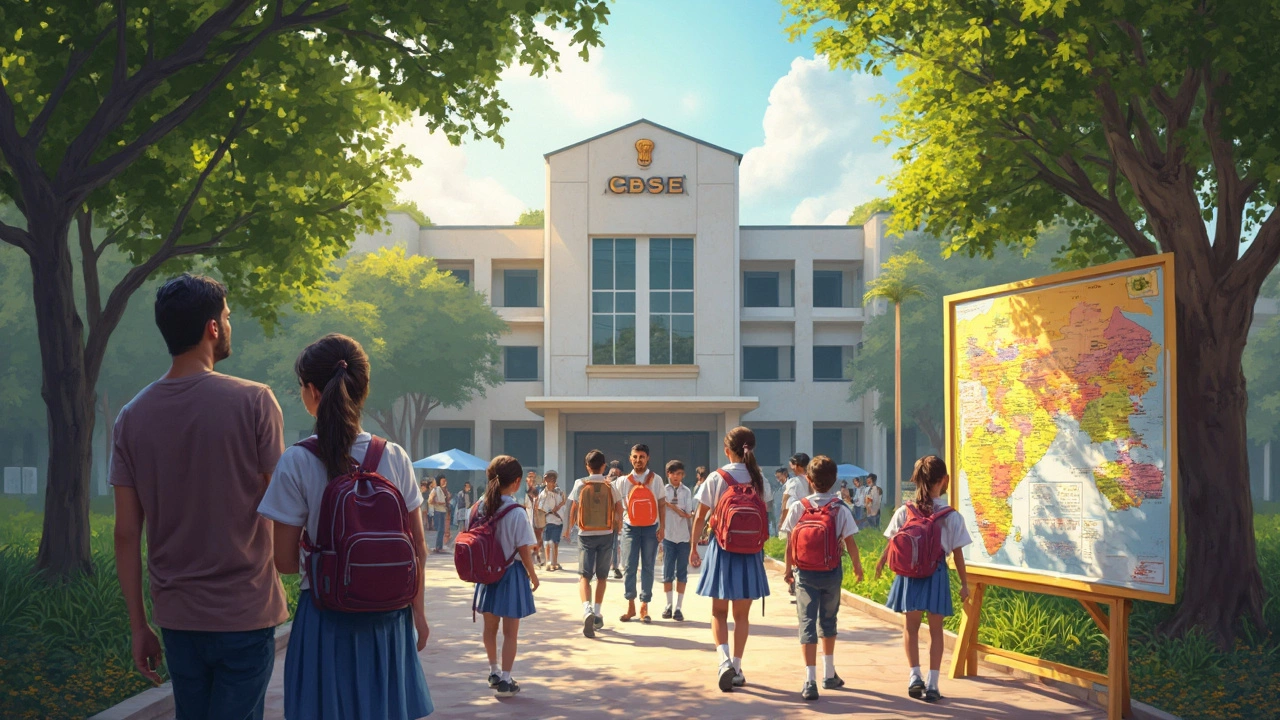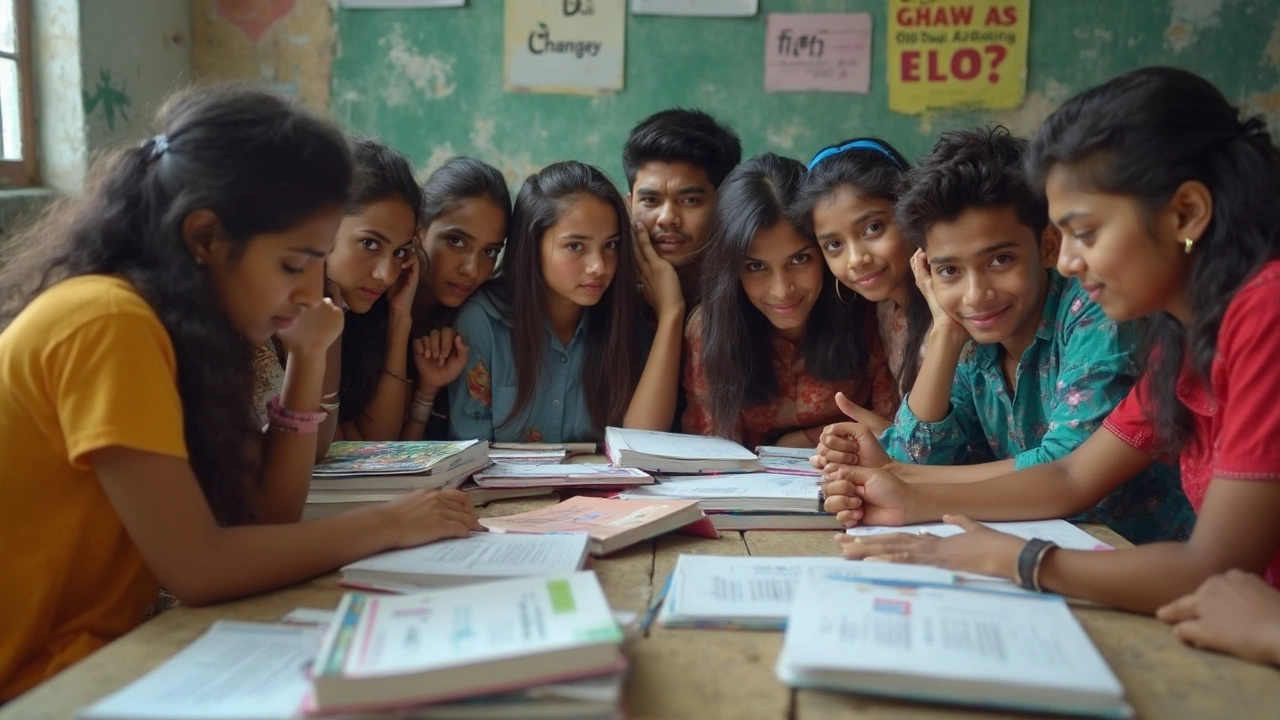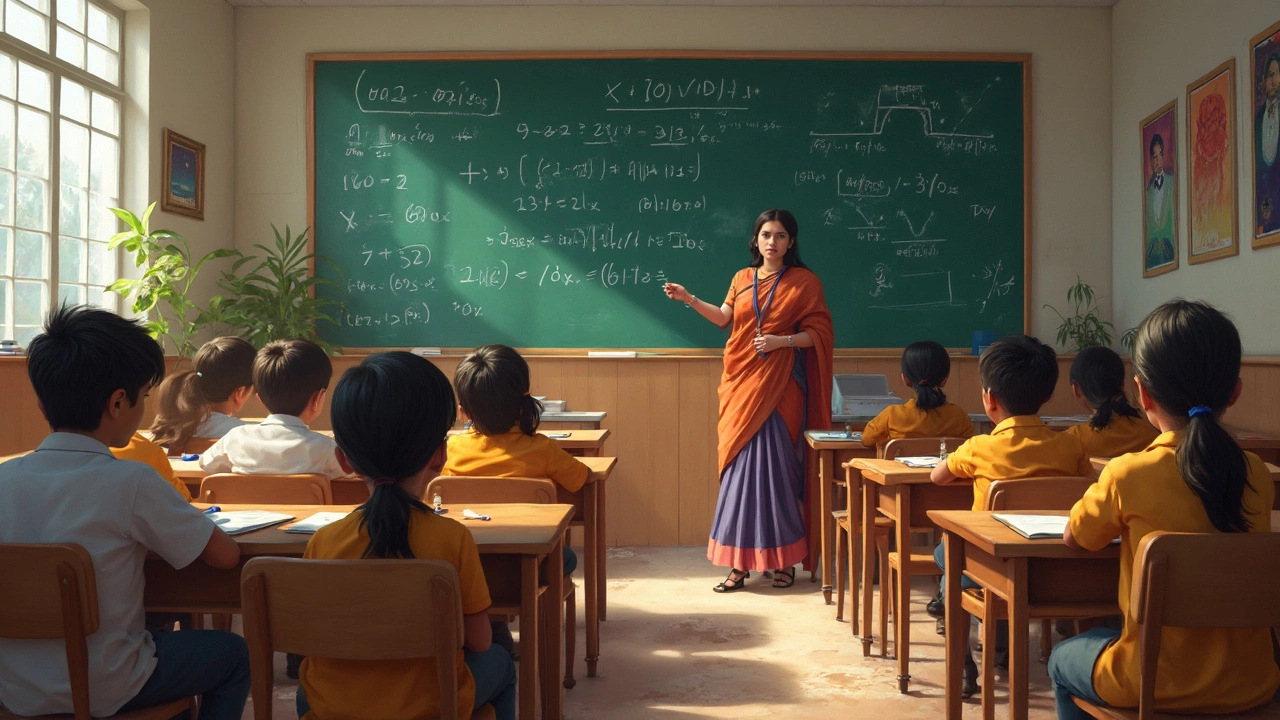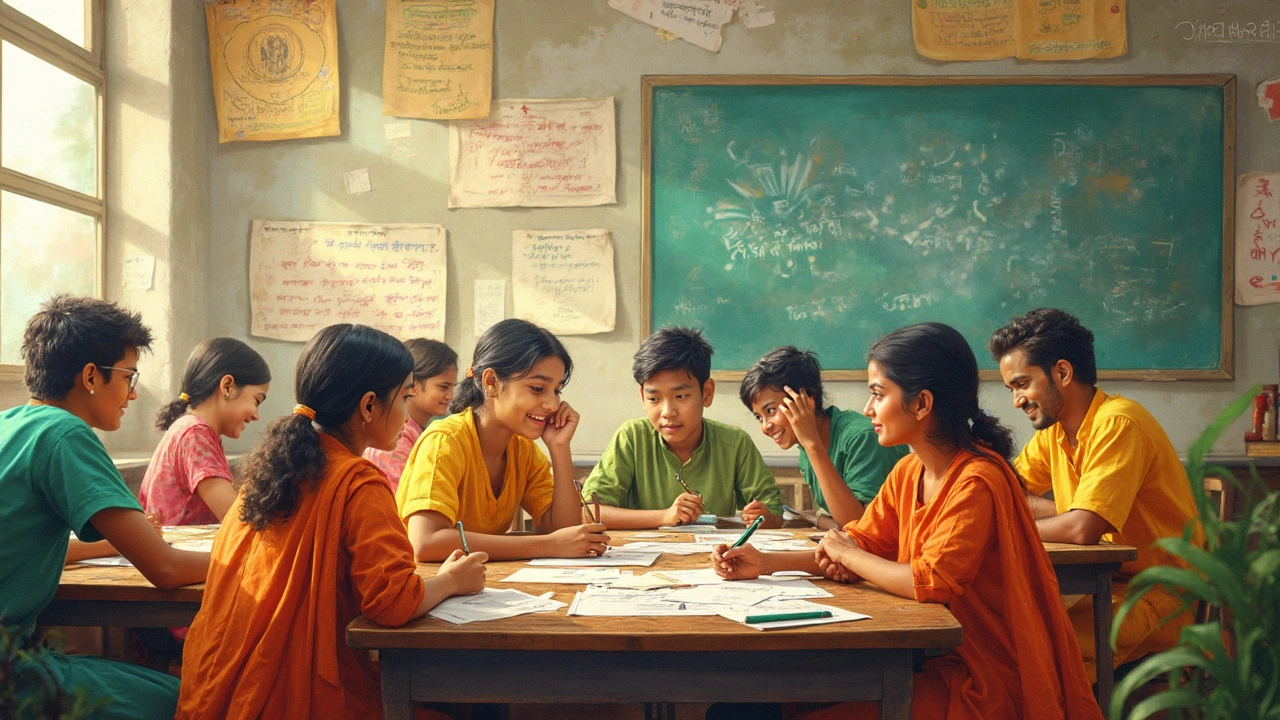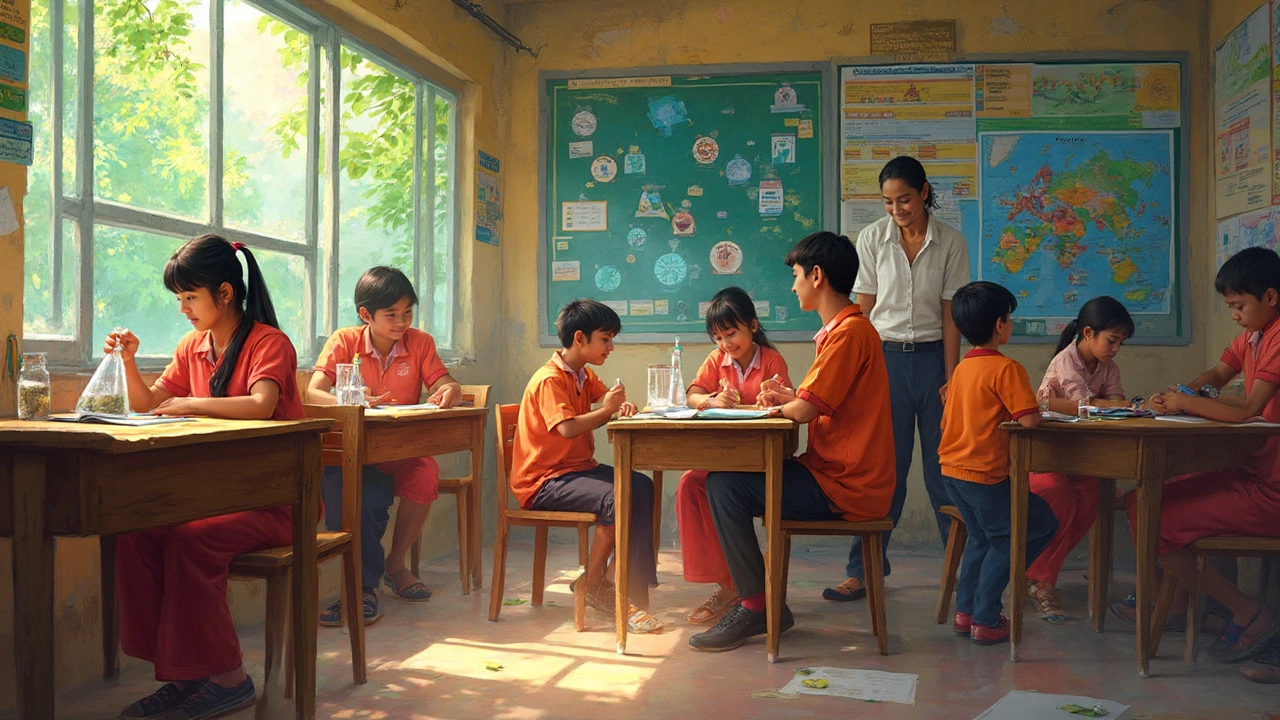CBSE Syllabus – Complete Overview for Students and Parents
If you’re looking at the CBSE syllabus, you probably want to know what’s inside, how it’s organized, and how to make it work for you. The CBSE board designs its curriculum to balance theory and practical skills, so you get a solid base in math, science, languages and life skills. Below we break down the main parts and share simple tips to stay on top of the material.
Key Features of the CBSE Curriculum
The CBSE syllabus is split into three stages: Primary (Grades 1‑5), Upper Primary (Grades 6‑8) and Secondary (Grades 9‑12). Each stage has a set of core subjects and optional electives. Core subjects usually include English, a regional language, Mathematics, Science, and Social Studies. From Grade 9 onward, Science branches into Physics, Chemistry and Biology, while Mathematics stays as a single integrated subject.
One standout feature is the emphasis on continuous and comprehensive evaluation (CCE). Instead of relying only on one big exam, CBSE uses periodic assessments, projects and practical work. This means you’ll see regular quizzes, lab reports and assignments throughout the year, which helps you identify weak spots early.
Another important point is the focus on skill‑based learning. The syllabus includes activity‑based learning (ABL) modules, especially in elementary classes, to make concepts more understandable. For example, a science topic on “Plants” might involve a simple garden project instead of just reading textbook diagrams.
Tips to Navigate the CBSE Syllabus Effectively
Start by getting a clear copy of the latest syllabus for your class. You can download it from the official CBSE portal or pick up a printed version from school. Mark the chapters that carry the most weight in board exams – usually the first and last chapters of each subject.
Create a weekly study plan that mixes theory, practice and revision. Allocate shorter, focused sessions for subjects you find tough, like Chemistry or Mathematics, and longer blocks for language practice. Use past year papers to get a feel for question patterns; you’ll notice that CBSE often repeats concepts in different formats.
Don’t ignore the practical component. For lab subjects, make sure you understand the experiment steps, safety rules and the outcome you need to write. A quick tip: after each lab, write a one‑page summary of what you did and why – it saves time when you revise before exams.
Leverage online resources that align with the CBSE syllabus. Platforms like Mission Excellence in Education India offer free study material, video explanations and practice quizzes that match the CBSE curriculum. These resources are handy when a teacher’s explanation isn’t clear.
Finally, stay in touch with your teachers and classmates. If a concept feels confusing, ask a friend or raise it in class. Group study sessions can clarify doubts quickly, especially for subjects like Social Studies where discussions add depth.
Understanding the CBSE syllabus is the first step to mastering it. By knowing the structure, focusing on continuous evaluation, and using practical study habits, you can turn the syllabus into a roadmap rather than a hurdle. Keep your plan simple, stay consistent, and watch your confidence grow as you move through each grade.
Is British or CBSE better for students in 2026?
CBSE and British curriculum offer very different paths. CBSE is ideal for students targeting Indian engineering or medical colleges. The British curriculum prepares students for global universities with deeper critical thinking and project-based learning.
read moreChoosing the Right School Syllabus for Your Child: CBSE, ICSE, State or International?
Explore CBSE, ICSE, State and International curricula to find the best syllabus for your child. Compare focus, assessments, costs, and future goals.
read moreCBSE Topper: Stories, Rankings, and What Makes the Best Student Stand Out
Curious about the best topper of CBSE? Dive into what defines a CBSE topper, the realities behind record-breaking scores, and the mindset that separates champions from the crowd.
read moreCBSE Schools in India: Which State Has the Most?
This article unpacks which Indian state tops the charts with the highest number of CBSE schools and what makes certain states a popular pick for parents and students. You’ll get a look at real numbers, see what drives these trends, and find out why location matters for CBSE education. Plus, there are practical tips if you’re hunting for a CBSE school. Discover how CBSE schools impact opportunities across various states. Packed with relatable stories and facts, this guide makes picking the right state and school easier for your family.
read moreWhich Board Is Best for the Future? Unpacking the CBSE Syllabus
Picking the right education board can shape your future. This article digs into the CBSE syllabus, how it stacks up against other boards, and what it actually means for students' university chances or job paths. It highlights facts, breaks myths, and shares tips for making a smarter decision. You'll also get a glimpse into what life is like for students and parents navigating these choices. Whether you're in Class 8 dreaming big or a parent stressing about the next step, this guide lays out what really matters.
read moreHardest Subject in CBSE: The Truth Behind the Number 1 Challenge
Cracking the code to the hardest subject in the CBSE syllabus isn't as simple as just picking a name. This article digs into the debates, with facts and smart tips for tackling difficult subjects. You'll find out which subject truly sits at the top in terms of difficulty, why it gets this reputation, and how real students manage. Expect plenty of relatable examples, myth-busting, and advice you can use now. If you're stressing about CBSE exams, you'll get honest answers and practical help.
read moreWhat is the Most Disliked Subject in School?
Math often takes the crown as the most disliked subject among students following the CBSE syllabus. Many students struggle with its complexity and the pressure to excel. This article explores the reasons behind this aversion and offers some practical tips for students to make math more approachable. Understanding the root of this dislike might just help educators turn the tables and make math more enjoyable for students.
read moreIs Education Better in India or the USA?
Choosing between education in India and the USA depends on individual goals and priorities. Both countries offer unique benefits: India with its strong foundation in math and science, and the USA with its focus on creativity and student engagement. Understanding the CBSE syllabus and its global relevance is crucial, alongside weighing cultural and lifestyle differences. Balancing these factors helps in making an informed decision about studying in either country.
read moreWhat is a 12th Class Degree Called in India?
In India, the 12th class degree is often referred to as 'Senior Secondary School Certificate' which marks the completion of higher secondary education. This stage is critical as it sets the foundation for students' university education and career paths. It's part of the Senior Secondary stage of the Indian education system governed by boards like CBSE, ICSE, and state boards. Depending on the stream chosen, students prepare through a curriculum focusing on specialized subjects. After successful completion, they receive certificates recognized nationally and internationally.
read moreIs CBSE Only in India? Exploring Its Global Reach
CBSE, known for its rigorous curriculum and clear guidelines, primarily operates in India but extends to numerous countries worldwide. It not only serves Indian students but also caters to a global audience, providing standardized education across borders. With its focus on holistic development and practical application of knowledge, CBSE sets a benchmark in education. This article explores the presence and impact of CBSE beyond India's borders, offering insights into its adaptability and acceptance in diverse educational landscapes.
read more